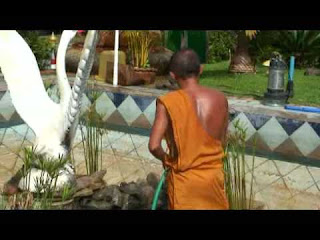ANDREW BURRELL
THE head of a $7 billion Chinese mining
project in the Pilbara says Australia has a golden opportunity to meet China's
soaring demand for high-quality food and he would prefer to invest in
agriculture rather than iron ore, given the risk of falling prices for the
steelmaking ingredient.
Citic Pacific Mining executive chairman Dongyi Hua told Julia Gillard and Perth business leaders yesterday that soaring demand for Australian food, particularly beef, among China's 100 million wealthy people could buffer Australia's economy from the effects of an end to the mining boom.
"Those top people, they never care about
the price," Dr Hua told an In The Zone business roundtable in Perth
sponsored by The Australian.
"If it's $15 or $50 a kilo (for
Australian beef), they are willing to accept it."
Citic Pacific's Sino Iron magnetite project
is set to enter production in September after several cost overruns and major
delays.
Dr Hua said Citic Pacific had begun a cattle
export operation on a pastoral property it owned in the Pilbara as part of its
acquisition of mining tenements several years ago.
His comments come amid rising concerns from
politicians such as Nationals Senate leader Barnaby Joyce and independent
senator Nick Xenophon about increasing Chinese investment in Australian
agriculture.
Wesfarmers chief executive Richard Goyder,
who attended the roundtable, last month said sensitivity over Chinese
investment in farms was overdone, as it remained "minuscule".
Mr Goyder has been stitching up deals with
Australian farmers so that Wesfarmers' Coles supermarkets can ensure future
supplies of food in the face of an expected onslaught of demand from
supermarkets in China.
Dr Hua said yesterday that there was a risk
that China's steel production was peaking and Australia alone could lose up to
100 million tonnes a year of supply into the global iron ore market.
"This year China will reach 800 million
tonnes of steel, but those quantities can not increase every year," he
said.
But Rio Tinto Iron Ore chief executive Sam
Walsh said he did not expect Chinese iron ore demand to fall dramatically.
"I think the answer is we need to have
the operations that are in the first cost quartile," Mr Walsh said.
"We are the proximate supplier to China, we need to be the very best that
we can be. I can't see a situation where the volumes that we've won, we'll
lose.
"Volumes may change over time, but it
will be others who lose it, not Australia because we are very well-positioned
with what we supply."
Dr Hua said Australia "has to consider
how to keep the economic system running well" and said China had 1.3
billion people to feed with a declining area of arable land.
"In China at the moment they are facing
a problem," he said.
"So when people talk about Australia in
Beijing or Shanghai, or even in the small towns, they will talk about the nice
weather, lots of land and high-quality food.
"So this is really an advantage for
Australia."
The In the Zone roundtable at the University
of WA was also attended by Woodside Petroleum chairman Michael Chaney,
Chevron's Gorgon manager Colin Beckett, ANZ state chairman John Atkins and
Special Minister of State Gary Gray.
Original Article Here


